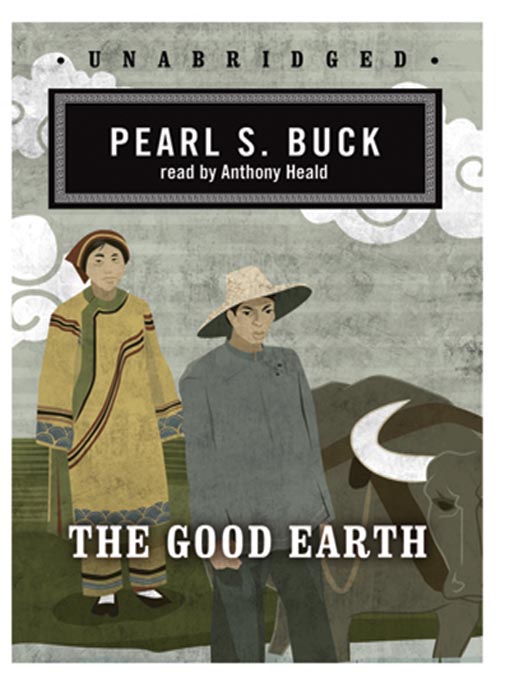


William Faulkner later referred to her as “Mrs. It hasn’t helped Buck’s literary reputation that her most enthusiastic readers have been women. Their comments have often been mean-spirited, condescending, sexist - and to some extent probably justified, at least in saying that her fiction is middlebrow and without modernist stylistic complexity and irony. The gatekeepers have not admitted The Good Earth to the pantheon of Great American Literature (though it is in the Valhalla of CliffsNotes). Yet the seven pirated translations of The Good Earth into Chinese sold more copies than any other foreign book had up to that point.

On the other hand, prominent Chinese intellectuals objected to Buck’s realism (perhaps they didn’t want outsiders to know that Chinese farmers could have sex) or resented that it was a foreigner who got the earliest Nobel for writing about China. The citation for the 1938 Nobel Prize in Literature talked of its “primordially primitive peasants” who led a changeless existence through “countless centuries.” Compared to that, I prefer Oprah Winfrey’s 2004 Book Club endorsement of The Good Earth as “juicy as all get out.” Was The Good Earth (1931), her most famous work, more influential than any Western book on China since The Travels of Marco Polo? Maybe so, but some of the initial praise it received now makes one cringe. She’s a figure of obvious stature, but it’s easier to list the ways in which she has been overpraised or underrated, misunderstood or misjudged, than to say just where she should fit into the ranks of American writers. She was the first Nobel Prize winner to have lived in China, having been there for over half of her life at the time she won the prize, and only the third laureate, after Rudyard Kipling and Rabindranath Tagore, to have strong ties to any part of Asia.


 0 kommentar(er)
0 kommentar(er)
